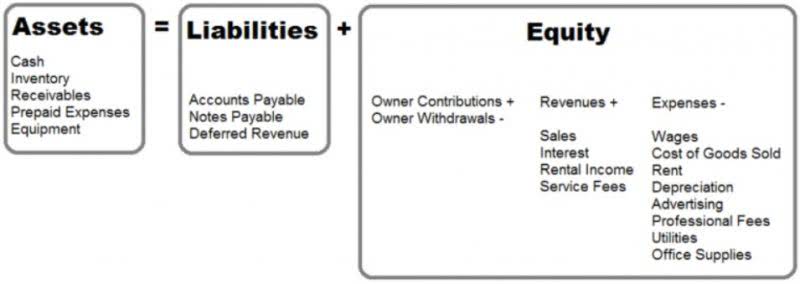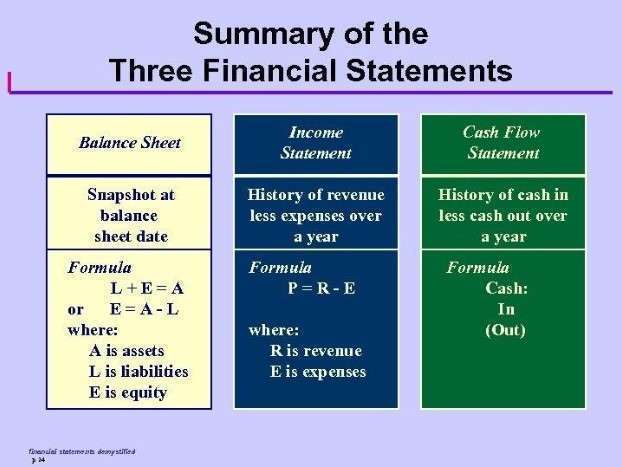Law Firm Accounting Guide for Optimizing Your Finances

Accounting software with a robust client relationship management system (CRM) saves time and streamlines your firm’s invoicing and billing workflows. It’s essential that your firm’s bookkeeping of financial transactions and accounts be meticulous and accurate. It’s easy to record all deposits to bank accounts as income, but deposits made to IOLTA accounts law firm bookkeeping solutions aren’t income for your law firm—they belong to your client. If there are any differences between the three, your trust reconciliation report should show the reason for the discrepancy. For example, say you deposited a check for $10,000 to the trust account on December 30 but the deposit didn’t clear the bank until January 2. The December 31 bank statement shows a balance that is $10,000 less than your books or the client’s trust ledger due to a timing difference.
Maximize Billable Time & Cash Flow
Some jurisdictions may require you to complete financial reporting periodically. For example, the ABA requires firms to do three-way trust reconciliation at least quarterly. Providing several flexible payment options can help your team get paid faster and improve payment collection. In our 2024 Legal Industry Report, MyCase and LawPay customers collected 33% more from their clients who paid using online payments. During tax season, those using cash basis accounting are generally only required to report on income received and expenses paid in the year they were received or paid. Integration facilitates data synchronization, reduces manual data entry, and enhances workflow efficiency across various law firm operations.
Sidebar: Legal Document Management
Watch a replay of our webinar with Claude E. Ducloux to learn about the basics of trust accounting. In this guide, we’ll cover the steps to get started with law firm accounting. We’ll also share tips, resources from our team, and ways our law firm accounting software can help you easily manage accounting tasks while boosting productivity and maintaining compliance.
Accrual Accounting
- Law firm accounting software can streamline billing and invoicing processes by automating many of the tasks involved.
- At least once a month, review your receivables and follow up on outstanding client invoices to keep your cash flow strong.
- Let’s schedule a discovery meeting so we can discuss your needs and confirm there’s a fit.
- Correctly setting up payroll helps ensure everyone gets paid on time, your staff understands how they’re compensated, and that you have the information needed for taxes and other requirements.
- If you’re required to open an IOLTA account, your local Bar Association may have a list of recommended financial institutions to work with.
- Law firm accounting and financial management software eliminates the need to maintain multiple programs.
Managing your books via accounting software may get you started as a solo attorney. But, if you want to spend your time focused on practicing law rather than deep in the weeds of your law firm’s Certified Public Accountant accounting and financial management, you may want to consider hiring help. One (or more) of these professionals can greatly assist with your law firm’s accounting.

Keep accurate financial records
Next, we recommend that your firm makes an inventory of the specific capabilities and features that you require in your law firm accounting software. For this, you should confer with both your legal team and your accountant. After you process your pay run using law firm accounting software, your accounts will be updated automatically. Trust accounting rules requires law firms to closely manage each of their client’s trust funds to avoid misappropriation.
How to succeed at accounting for law firms and bookkeeping in 2022
Correctly setting up payroll helps ensure everyone gets paid on time, your staff understands how they’re compensated, and that you have the information needed for taxes and other requirements. We’ll go over the cash and accrual accounting along with the pros and cons of both below. If you haven’t completed this first step, check out our guide on starting a law firm for more in-depth guidance. Search across millions of pages, documents, folder email and notes in seconds. Server-based software is installed and runs on in-house servers, and users access it through the firm’s internal network.

Choose cloud-based legal accounting software
To learn more about tracking KPIs and billable hours in a law firm, click here. To learn more about managing IOLTA/Trust Accounts for law firms click here. To learn the 6 benefits of outsourcing your law firm’s payroll, click here. With CosmoLex, you can generate reports to understand revenue flow, gain insight into matter management activities, and follow industry requirements. Pinpoint profit centers and understand their relationships to make informed decisions about your firm’s growth, whether you’re solo, a large firm, or in between. Key features include cash management, real-time financial dashboards, and revenue recognition management.
Step 10: Set a Schedule for Financial Reporting and Reconciliation
Every state has an IOLTA program, and it’s likely that the bank where you opened your regular business checking account also offers IOLTA accounts. But rules vary by state, so consult your State Bar Association and a professional accountant before finalizing your accounting setup. Are you looking for more information on the role of technology in a modern day law firm, read our article here. When it comes to our record-keeping, the handling of our Trust account was and continues to be most important. Now that we work with Lescault and Walderman, they are responsive to our needs.
With MyCase, you not only gain powerful financial tools but also an integrated solution that supports your firm’s complete operational needs, fostering financial wellness and overall success. In today’s competitive legal world, robust financial tools are key to success. MyCase Legal Accounting offers advanced planning and analytics to give you actionable insights and strategic oversight, going beyond basic accounting. Data discrepancies related to invoices, bills, and other financial transactions can lead to larger issues. Manual bookkeeping can also lead to small mistakes—like duplicate entries—that can lead to reporting and compliance issues down the road.